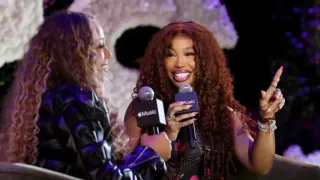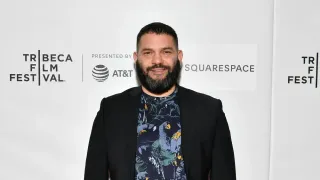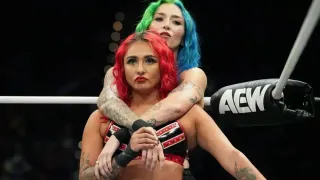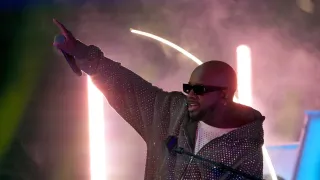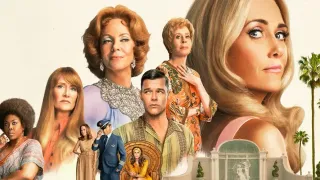July 8, 2024
Alonso Duralde Connects the Queer Dots in 'Hollywood Pride: A Celebration of LGBTQ+ Representation and Perseverance in Film'
Steve Duffy READ TIME: 11 MIN.
EDGE: Is there somebody that you didn't realize was part of the LGBTQ+ community until you were writing this book?
Alonso Duralde: I owe a lot to the historians and writers who came before me. William Mann's book "Behind the Screen: How Gays and Lesbians Shaped Hollywood" was illuminating, because you have heard over the years about this actor or that director, so I found it to be fascinating to get into the weeds and learn about them. I loved learning about James Crabe, who was the cinematographer of "Rocky" and "The Karate Kid," and who was part of this very loose affiliation of gay men who were working in the industry in the 1960s and had this group called the Gay Girls Riding Club. They would get together and film these very campy shorts that were sort of satirical takeoffs of well-known movies. They had titles like "What Really Happened to Baby Jane?" or "The Roman Springs on Mrs. Stone," and they would show them in bars or at parties. It was all very kind of underground, but it was just a fun thing for people who were working in the industry to get involved in. Then Crabe goes on to become part of these essential films that are in no way queer, but he's one of the main artists who makes them happen. These gay artists made these gay movies, but a lot of these same gay artists made these not-so-gay movies that are nonetheless canonical and historically important, and beloved by audiences everywhere. I love connecting those dots.
EDGE: Has writing this book changed the way you see yourself as a member of the LGBTQ+ community?
Alonso Duralde: Not really. If anything, I feel like this is a gong that I have been banging on for a long time. For anybody familiar with my work at The Advocate or from my first book, my worry is always [the reaction will be], "Oh her again." From the moment I came out, I had already been steeped in cinema, and I was the closeted kid in high school reading "The Celluloid Closet" off the shelves in the library – never checking it out, but just standing there and reading it for as long as I could. Having worked in queer media and queer film festivals, I feel like this is the next logical step for me.
EDGE: Although film is the focus of this book, how do you think television compares in terms of LGBTQ+ representation?
Alonso Duralde: I think television has had the opportunity to take a lot of bigger swings, especially in the last couple of decades. When we talk about studio filmmaking, how every so often they'll announce, "We're introducing the first gay character," and then you blink, and you missed it. Whereas, I think TV is less concerned about getting banned in this country or other countries. TV has progressed beyond the three-network [era], and now with streaming and YouTube you can narrow down and find more niche content to reach a larger audience. That's has opened up a lot of opportunities for different communities to be more represented. It is still an uphill battle, and more strides need to be made for us.
Overall, I think the representation on TV has taken huge leaps and bounds [of] the kind that, as children, my generation would have never expected to see happen.
EDGE: What movie helped you the most when you were growing up?
Alonso Duralde: [There was] a catalog of some very bleak titles that did the opposite, but I will say seeing "Victor/Victoria" when I was in high school was one of the first times I'd ever seen a movie that had characters who were unapologetically gay, and characters who were not the butt of the joke or the object of violence. That movie is not perfect, but I think that there's a lot that it does get right, especially for someone who was 15 and watching it in 1982.
EDGE: If you could spend a day with someone from "Hollywood Pride," whom would you choose?
Alonso Duralde: Oh, good one. So many choices. It would be actor/director James Whale, because I know he has stories and he was pretty comfortable with himself. When we look back at one of the things that William Mann says about people from the '30s and '40s in Hollywood, they didn't use the paradigm of "in the closet or out of the closet," because out of the closet was not an option. I think the words used were discreet, overt, or circumspect. George Cukor was very circumspect, and then you have James Whale, who was overt. James was not leading a pride parade or anything, but I think he was an incredible artist who created some great stuff. I think they all were comfortable in their queerness and understood the parameters within which they lived, especially for the era that they were living in. So, I would love to hang out with either of them.
EDGE: Is there one film that you recommend for everyone to watch?
Alonso Duralde: "The Celluloid Closet," which does a great job at covering the ups and downs of Hollywood's representation of LGBTQ+ characters, particularly in classic Hollywood cinema, but it goes all the way up to the nineties. I would also check out the Netflix documentary "Disclosure," which does a great job of capturing trans representation in pop culture, movies, and television, for better or for worse. For example, Katie Couric's interview with Laverne Cox where she says, "We're not going to talk about your surgery, and we're not going to talk about the things that people think are somehow appropriate to ask trans people." I think it not only reshapes that conversation, but reshapes the larger way in which these issues are discussed in the media and in culture.
I would say start with those two documentaries. They cover a lot of ground, and they're super informative. They will also give you a lot of titles that you'll want to chase down and watch for yourself.
EDGE: I believe I know what someone from the LGBTQ+ community is going to get out of this book, but what are you hoping that non-queer individuals will walk away with?
Alonso Duralde: There's always that joke about how if you talk about movies or TV with a Canadian and you bring up an actor who happens to be Canadian, they will immediately tell you that William Shatner's Canadian. I would love for non-queer people to read this book and learn something that they didn't know about a director or an actress they love, or someone that they've always admired. I want them to come away with a larger understanding of that person's life and how they were able to not only exist during periods where their very being was being quashed, but flourished and created art that continues to live today. For a lot of queer people, especially if you're a queer person who loves movies, you'll know a lot of the names and titles in this book. For people who love film, or even just casually enjoy film because they watch TCM, I would love for them to come away with a larger sense of the fact that queer people have always been here, and we've made your life better by making these incredible performances, stories, or even costumes.
"Hollywood Pride: A Celebration of LGBTQ+ Representation and Perseverance in Film" is available at Amazon and other online booksellers.
For more on Alonso Duralde, follow this link.

